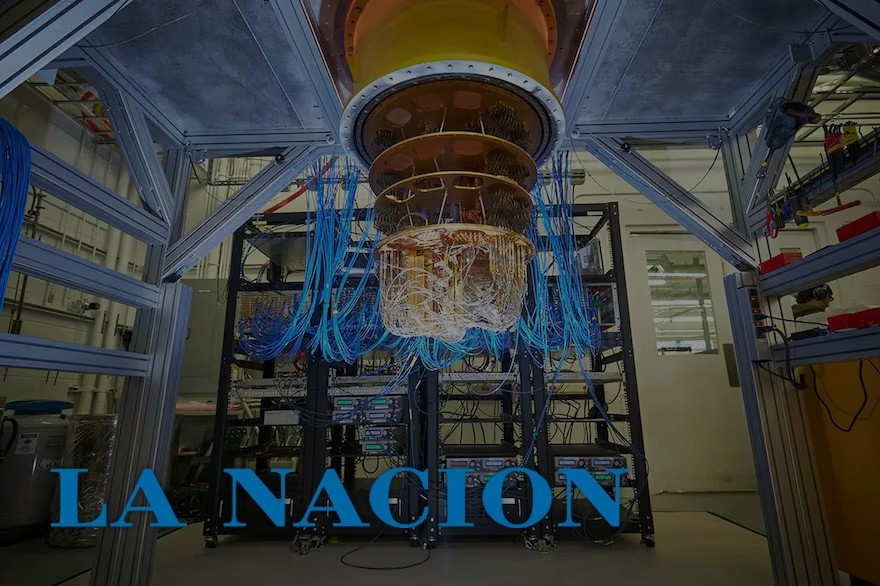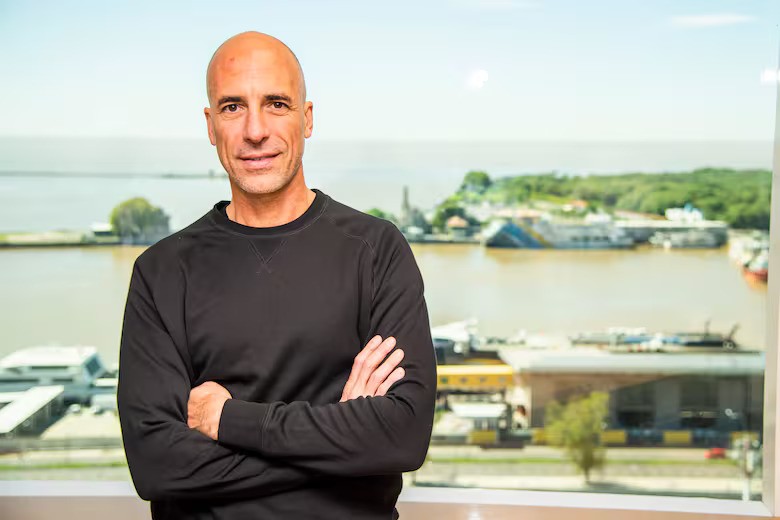/q99, the Argentine startup aiming to popularize quantum computing in the region, is highlighted.
Sep 19, 2024

This is one of the technologies that seems closer to science fiction and Hollywood than reality. However, an Argentine startup is striving to make a mark in this field, which promises to revolutionize data processing and solving complex problems.
To grasp the essence of this, we can start with a definition: quantum computing differs from classical computers in a key aspect. While current computers process information in bits, which can be in a state of 0 or 1 and operate sequentially (first one, then the other), based on whether electricity flows through the circuit, quantum computing uses qubits. These qubits can exist in multiple states at once thanks to a phenomenon known as the quantum superposition of an atom's spin, allowing for operations that would take a classical computer significantly longer; it’s a completely different mode of operation.
To understand this better, we could recall the miniseries Devs (2020), where an entrepreneur uses a quantum computer to visually recreate scenes from the past and the future. While the plot is fictional, it intriguingly reflects these machines' ability to process large amounts of data simultaneously, exploring multiple possibilities and scenarios at once (a concept known as massive parallelism). For certain tasks (particularly, finding data within vast information sets), they can be up to 150 million times faster than a supercomputer.
However, they aren't meant for browsing the web, watching a series, or playing a game. All thanks to American mathematician Peter Shor, who in 1994 developed an algorithm demonstrating how quantum computers could be used to solve problems beyond the capabilities of classical computers. Qubits, like traditional bits, represent information. But they do so by following the laws of quantum mechanics: a qubit can represent a one, a zero, or a value defined by the superposition of both states. For instance, a 32-bit chain (of zeros and ones) can represent one out of 4.2 billion values, while a 32-qubit chain would simultaneously contain all those values.
IBM, Google, Microsoft, and other companies are investing large sums of money in this sector, which for now remains more experimental than commercial but already has companies renting out quantum computers (which do not resemble common computers but require different equipment, treatment, and calibration to operate).
Facundo Díaz, the Argentine founder of TravelX and Vrtify, is the mind behind the startup /q99. He explains it like this: “When we talk about quantum computing, we are talking about a different kind of computing. Today, the entire digital world we live in is based on the binary, with bits being zeros and ones. Quantum computing, on the other hand, works with qubits that use principles of subatomic physics. This allows us to process much more data than with a bit and develop probabilistic capabilities.”
In this context, the startup aims to build an ecosystem that encourages the use of this technology in the region. For Díaz, the key does not lie solely in owning the machine but in creating a collaborative environment where universities, scientists, and companies work together to harness its potential. "It’s not just about bringing a quantum computer; it’s about creating an ecosystem. There have to be researchers, universities, and industries involved."

What /q99 did was create an engine capable of simultaneously communicating with the needs and software of a traditional company and asking a quantum computer to handle requests involving massive data analysis. In the case of /q99, they use services from IBM, Google, and Rigetti (which have their own quantum computers and rent them out).
Quantum Noise
One of the most significant challenges of quantum computing is the need to correct errors caused by “quantum noise,” an interference that occurs during calculations and affects result accuracy. Currently, developers are focused on fixing these errors so quantum systems can be used efficiently for practical tasks. Díaz points out that "quantum advantage means I can create algorithms and work with a quantum computer, even with errors. We’re working to correct that noise, and we believe this will be achieved in the next 3 to 5 years."
The cost of a quantum computer currently ranges from $18 million to $50 million, a substantial figure but manageable for corporate conglomerates interested in research in this area. However, as Díaz emphasizes, the real value lies in creating an environment where its use can be maximized. “Having the technology isn’t enough. We need an ecosystem with researchers, universities, and companies working together to truly harness the potential of this technology.”
Moreover, integrating quantum computing with other emerging technologies, such as artificial intelligence (AI) and machine learning, opens up a range of possibilities. The ability to process large volumes of data in real-time could enhance precision in fields like medicine, climate prediction, or managing large supply chains. "In the financial sector, we are developing automated portfolio investment models capable of optimizing returns while minimizing risks," says Díaz, describing one of the projects underway.

Although Latin America arrived late to other technological revolutions, such as artificial intelligence, quantum computing offers a new opportunity to position itself in the global race. "Latin America joined the AI revolution late, but it can still be a leader in quantum computing," Díaz states.
Experts note that this technology has not yet reached what is known as “quantum supremacy,” the point where quantum computers can solve problems that traditional machines cannot (because they would literally take millions of years). Progress has been slow (with a first glimpse from Google in 2019), and experts say it will still be years before this technology is widely implemented. However, recent advances suggest that we are getting closer to this goal.
"Argentina has a significant base of scientific talent and a history of innovative technological developments, such as blockchain, but quantum computing demands a level of infrastructure and multidisciplinary collaboration that is still under construction," explains Díaz, whose startup /q99 was recently selected by the Quantum World Congress as one of the 7 startups with the most potential in quantum computing and its convergence with AI.
Although the potential is high, quantum computing’s impact on everyday life won’t be felt immediately. Its introduction will be gradual, with its effects first seen in specific sectors like finance, medicine, and scientific research. In the long term, the ability to perform complex calculations and process large volumes of information could transform these sectors.